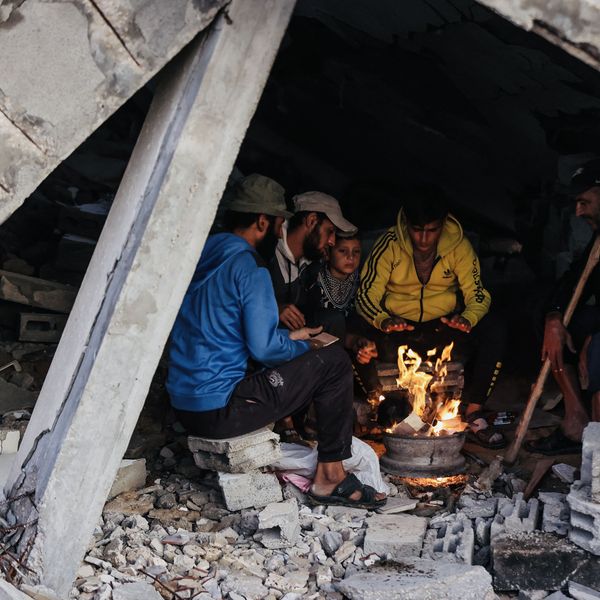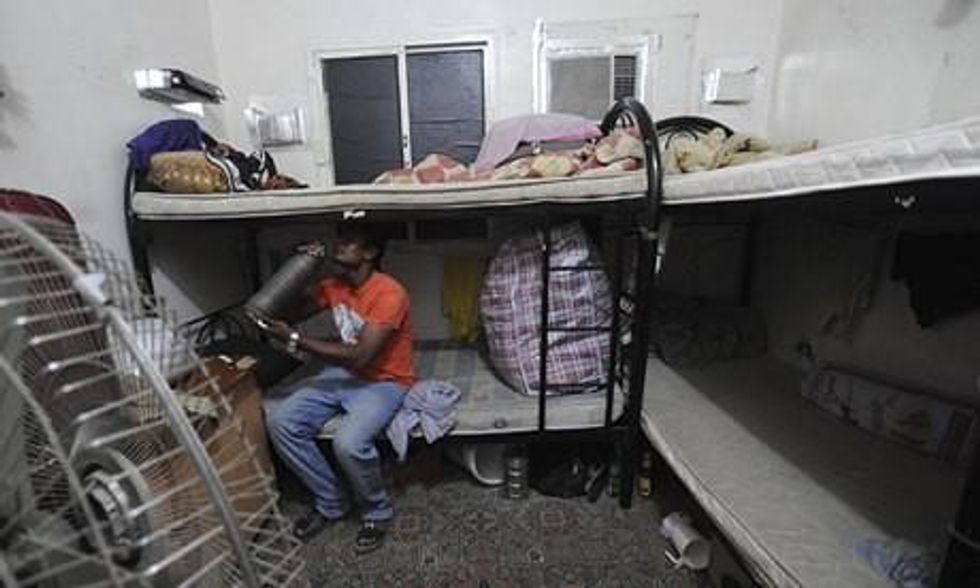These men were lured to Libya from villages in India with promises of good paying jobs in the oil fields. When they got there, usually after taking on much debt to finance the trip, they were forced to work under brutal conditions at a lower wage than they were promised. Other than their embassy, they had no local authorities to turn to for grievance.
Three decades later, a similar scenario is playing out in Qatar, where migrant workers are facing a myriad of abuses at the hands of their employers, a problem that has been brought into stark relief by preparations for the FIFA World Cup in 2022. In our new report, "The Dark Side of Migration: Spotlight on Qatar's Construction Sector Ahead of the World Cup", Amnesty International has uncovered many cases where these abuses amount to forced labor or human trafficking. Migrant workers currently make up over 90% of the total workforce in Qatar and most of them come from countries in Asia and the Middle East including Bangladesh, Nepal, Pakistan, Egypt, Sri Lanka and my home country of India.
In Libya back then, Indian workers were being abused in the oil fields that produced petroleum for export. Today in Qatar, workers' rights are violated in industries tied to infrastructure development, risks that will only increase as the country invests heavily in construction projects in advance of the soccer championship.
The main issues that workers say they face are deception in recruitment about types of work, wages and conditions, restrictions on their mobility when they arrive, not getting paid for work they perform, and unsafe conditions on the work sites. A unifying element is that these workers all say they don't have access to any government institution to appeal to that would swiftly investigate claims and provide resolution. Their experiences of fraud, force or coercion contain elements of human trafficking as defined under international law and are grave abuses of human rights.
A Qatari law that allows for companies to sponsor workers, and thus bring them to the country, also makes it extremely difficult for workers to change jobs or return home without permission from the sponsor. Amnesty International research documented cases of dozens of construction workers who tried to leave the country but were prevented from doing so by their employers. These employers exercised authority to restrict workers' freedom of movement, many illegally confiscating their employees passports and refusing to return them when workers expressed a desire to leave. These actions only add to a worker's sense that his employer has much authority over him with few options available to leave and seek justice.
Furthermore, in the rush to prepare for the World Cup, Qatar's many construction projects are ambitious, massive operations. There are myriad dangers to workers, both from accidents and from working in a very hot climate. As the director of the Hamad Hospital trauma unit in Doha told Amnesty researchers:Companies should take more interest in the safety of their workers. The authorities must be strict on rules and regulations to force these companies to take all safety measures and make it obligatory at all construction sites.
These risks can be mitigated if the Qatari authorities press employers to adequately protect health and safety, and by creating mechanisms for workers to safely file complaints.
The Qatari government has the ability to rectify such emerging risks to workers' human rights. Similarly, in a few months, the Winter Olympics will be held in Sochi, Russia, among increasing concerns about the deteriorating human rights situation there. Despite global public outcries and the courageous actions of many within Russia who continue to demand respect for human rights, Russian authorities continue to dampen peaceful protest and resist implementing reforms.
Well ahead of the 2022 World Cup, Qatar has an opportunity to address human rights risks by instilling laws, systems and practices to protect migrant workers and the many others who will be coming seeking fair work during the related construction boom. Political will is needed now to provide confidence to global visitors to Qatar that the facilities they will enjoy were not produced at the expense of someone's human rights. Visitors and investors must press the Qatari authorities on this.
The time to do so is now.



